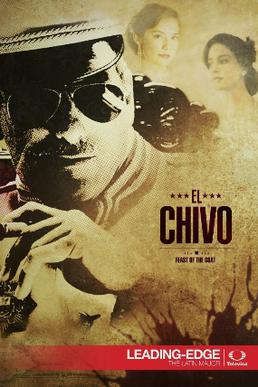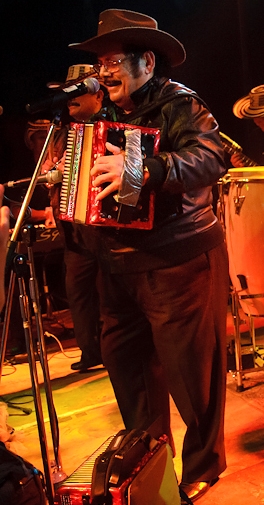Related Research Articles
Special education is the practice of educating students in a way that accommodates their individual differences, disabilities, and special needs. This involves the individually planned and systematically monitored arrangement of teaching procedures, adapted equipment and materials, and accessible settings. These interventions are designed to help individuals with special needs achieve a higher level of personal self-sufficiency and success in school and in their community, which may not be available if the student were only given access to a typical classroom education.

Barranquilla is the capital district of the Atlántico department in Colombia. It is located near the Caribbean Sea and is the largest city and third port in the Caribbean coast region; as of 2018, it had a population of 1,206,319 making it Colombia's fourth-most populous city after Bogotá, Medellín, and Cali.
Education in Mexico has a long history. Indigenous peoples created institutions such as the telpochcalli and the calmecac. The Royal and Pontifical University of Mexico, the second oldest university in the Americas, was founded by royal decree in 1551. Education in Mexico was, until the early twentieth century, largely confined to males from urban and wealthy segments and under the auspices of the Catholic Church.
Hebrew school is Jewish education focusing on topics of Jewish history, learning the Hebrew language, and finally learning their Torah Portion, in preparation for the ceremony in Judaism of entering adulthood, known as a Bar or Bat Mitzvah. Hebrew School is usually taught in dedicated classrooms at a Synagogue, under the instruction of a Hebrew teacher, and often receives support from the cantor for learning the ancient chanting of their Torah portion, and from the rabbi during their ceremony since they must read from a Torah scroll, which has no Hebrew vowels, and very close together text and minimal line spacing; making it very challenging for almost anyone to read from.
Education in Spain is compulsory and free for all children aged between 6 and 16 years and is supported by the national government together with the governments of each of the country's 17 autonomous communities.

Mainstreaming, in the context of education, is the practice of placing students with special education needs in a general education classroom during specific time periods based on their skills. This means students who are a part of the special education classroom will join the regular education classroom at certain times which are fitting for the special education student. These students may attend art or physical education in the regular education classrooms. Sometimes these students will attend math and science in a separate classroom, but attend English in a general education classroom. Schools that practice mainstreaming believe that students with special needs who cannot function in a general education classroom to a certain extent belong in the special education environment.

Natalia Andrea is a Colombian journalist and news anchor in the United States, three time Emmy Award winner, news anchor for "Mega News" on Mega TV and "TV Realtor" at Real Estate TV show "Esta Es Tu Casa" on Mega TV network, previously affiliated to Univision Network, and the show Primer Impacto.
The Education in Cesar Department as well as the education in Colombia is regulated by the Ministry of National Education, and managed by the Secretary of Education of the Department of Cesar. The education in the Department of Cesar is divided into Transition which has Pre Kinder and Kinder grade -4 to 6 year olds-; Primary School -7 to 11 year olds-; Secondary School -12 to 15 year olds) and Middle School which. Higher educational institutions, universities and colleges are divided into private and state owned. The Popular University of Cesar (UPC) is the state owned university of the Department of Cesar.

Colegio de la Preciosa Sangre de Pichilemu, often shortened to Preciosa Sangre, is a coeducational Roman Catholic private state-subsidized day school, serving students in preschool through twelfth grade, located in the commune of Pichilemu, Libertador General Bernardo O'Higgins Region, Chile.
Alberto Assa was an Ottoman-born Colombian educator, translator and humanist of Sephardi descent.
Colegio Karl C. Parrish is a bilingual private school that offers Preschool through 12th-grade education. The school is located in Barranquilla, Colombia.

El Chivo, is a telenovela produced by RTI Producciones and Televisa for United States-based television network Univisión and for Colombia-based television network Caracol Television. It is an adaptation of the book La fiesta del Chivo from Mario Vargas Llosa based on the history of Dominican Dictator, Rafael Trujillo. The telenovela began filming in May 2014.

Eloísa García Etchegoyhen (1921-1996) was a pioneering Uruguayan educator and disability rights activist. She not only created the first educational facilities in Uruguay to teach those with disabilities, but she developed job placement programs and parent support groups to help children integrate into the larger society. She spearheaded training for teachers and psychologists leading to the creation of research programs into the cause of intellectual disability and led a public awareness campaign to encourage acceptance of disabled people by their families and communities. She began the first school for students with multiple disabilities and began the first pre-school for early assessment and intervention for disabled children in Uruguay. She brought the Special Olympics to Uruguay and worked throughout Latin America and the Caribbean for inclusive policies for disabled citizens.

German School of Barranquilla is a private German international school in Barranquilla, Colombia. It is a German School of excellence abroad, who is officially sponsored by the Federal Republic of Germany. It is the oldest German school in Colombia, and one of the only two schools in the Colombian Caribbean coast that offer an IB Diploma, or the International Baccalaureate program. The School serves nursery, which starts when children are 3 years old, kindergarten, primary, and senior high school. The institution offers a 3-6 month exchange program in Germany, and Summer Camps to improve language immersion.

Macau Anglican College is a private Christian school in Taipa, Macau. Macau Anglican College was established in 2002 and provides education from kindergarten to senior secondary. It is an Anglican Foundation College, meaning it receives professional advice and financial backing from the Anglican Church in Hong Kong.
Colegio Estilo was a private secular school in Madrid, Spain. It was founded in 1959 by Spanish writer Josefina Aldecoa, who was the Principal of Colegio Estilo for 52 years. The last Principal of Colegio Estilo was Susana Aldecoa. Colegio Estilo has today around 200 students and 30 teachers. It was a secular and artistic school, located in the area of El Viso, in Madrid, Spain.

The Crandon Institute is a private bilingual Methodist school in Montevideo, Uruguay. Crandon was founded in 1879 by teacher Cecilia Güelfi as the Liceo Evangélico, or Evangelical High School, and was the first school in the country with roots in the Evangelical movement.

Roberto McCausland-Dieppa, also known as Dieppe, is a Colombian pianist, composer, and conductor, specializing in classical, jazz, and Hungarian music. His performances at various venues across the United States, Asia, Australia, and Europe, are noted such as Carnegie Hall, Ostrogskich-Chopin Hall, and the United Nations.

Aníbal Velásquez Hurtado is a Colombian singer, composer and musician, recognized for playing the accordion. He is also known by his nicknames "El Mago" and "El Rey de la Guaracha".
References
- ↑ "Archived copy". Archived from the original on 2009-08-27. Retrieved 2009-10-22.
{{cite web}}: CS1 maint: archived copy as title (link) - ↑ "Inicio - Santillana Colombia". Archived from the original on November 21, 2008. Retrieved October 22, 2009.
- ↑ [ dead link ]
- ↑ [ dead link ]
- ↑ ANDEP (11 September 2009). "Jardines Infantiles - ANDEP Asociacion Nacional de Preescolar y Educacion Inicial: Acreditacion de calidad en Barranquilla". Andep-educacioninicial.blogspot.com. Retrieved 2015-12-24.
- 1 2 Noticiero Televisa
- ↑ According to a 2005 national census, there are 546,431 disabled people between the ages of 5 and 16 in Colombia. 101,375 of these disabled young people are included in the Colombian school system, that is to say that only 18,55% of the disabled people at school age are receiving education. El-Shaddai Christian School is one of the 4,369 schools with some sort of programs for students with special education needs, out of the 362,532 schools in the country. See the report by the Colombian Minister of National Education at http://www.ibe.unesco.org/fileadmin/user_upload/Policy_Dialogue/48th_ICE/Presentations/IBE_ICE_Workshop_3B_Presentation_ES_Cecilia_Maria_Velez_White_Nov08.pdf
- 1 2 [ dead link ]
- 1 2 "Univision.com - Univision". Foro.univision.com. Archived from the original on 2013-02-05. Retrieved 2015-12-24.
- ↑ According to a report by the Organization of Ibero-American States for Education, Science and Culture (OEI), in 1993, seven years after the foundation of Colegio Cristiano El-Shaddai, only 3,5% of the disabled children were schooled in Colombia. For further information, see http://www.oei.es/quipu/colombia/col12.pdf
- ↑ El Heraldo, December 21, 1996
- ↑ Jornada sobre "niños excepcionales", El Heraldo, February 23, 1988
- ↑ La Educación del niño especial: un compromiso de padres e hijos, El Heraldo, December 3, 1993
- ↑ Sonia Calderón de Naar: Una educadora muy especial, El Heraldo, May 10, 1997
- ↑ Crean capítulo internacional de educación especial, El Heraldo, May 17, 1997
- ↑ [ dead link ]
- ↑ Miembros del Comité Científico Fundadown en Barranquilla, El Heraldo, May 16, 1990
- ↑ Velada Navideña Infantil de Paz, El Heraldo. December 14, 2001
- ↑ "Reformar los colegios, haciéndolos incluyentes - ..::Ministerio de Educación Nacional de Colombia". Mineducacion.gov.co. Retrieved 2015-12-24.
- ↑ "Inclusive Education | EDUCATION | UNESCO". Archived from the original on September 21, 2009. Retrieved October 22, 2009.
- ↑ Los niños no reciben tratamiento adecuado, Noticias Telecaribe
- ↑ "What is ABA". Archived from the original on July 9, 2009. Retrieved October 22, 2009.
- ↑ "Penn State Outreach News". Archived from the original on 2010-07-09. Retrieved 2009-10-22.
- ↑ "Kennedy Krieger Institute |". Kennedykrieger.org. Retrieved 2015-12-24.
- ↑ Autism Advocate Magazine, December 2008
- ↑ "Mental Health: A Report of the Surgeon General (1999)". Surgeongeneral.gov. 1999. Retrieved 2015-12-24.
- ↑ "Instituciones Educativas" (PDF). Archived from the original (PDF) on January 6, 2009. Retrieved October 22, 2009.
- ↑ Educación con Calidad, Noticias Telecaribe
- ↑ "Archived copy". sunbiz.org. Archived from the original on 2 August 2012. Retrieved 27 January 2022.
{{cite web}}: CS1 maint: archived copy as title (link) - ↑ Amor y dedicación para niños con necesidades educativas. Noticiero Televisa. Telecaribe
- ↑ "The Hebrew Names for God - El". Hebrew4christians.com. Retrieved 2015-12-24.